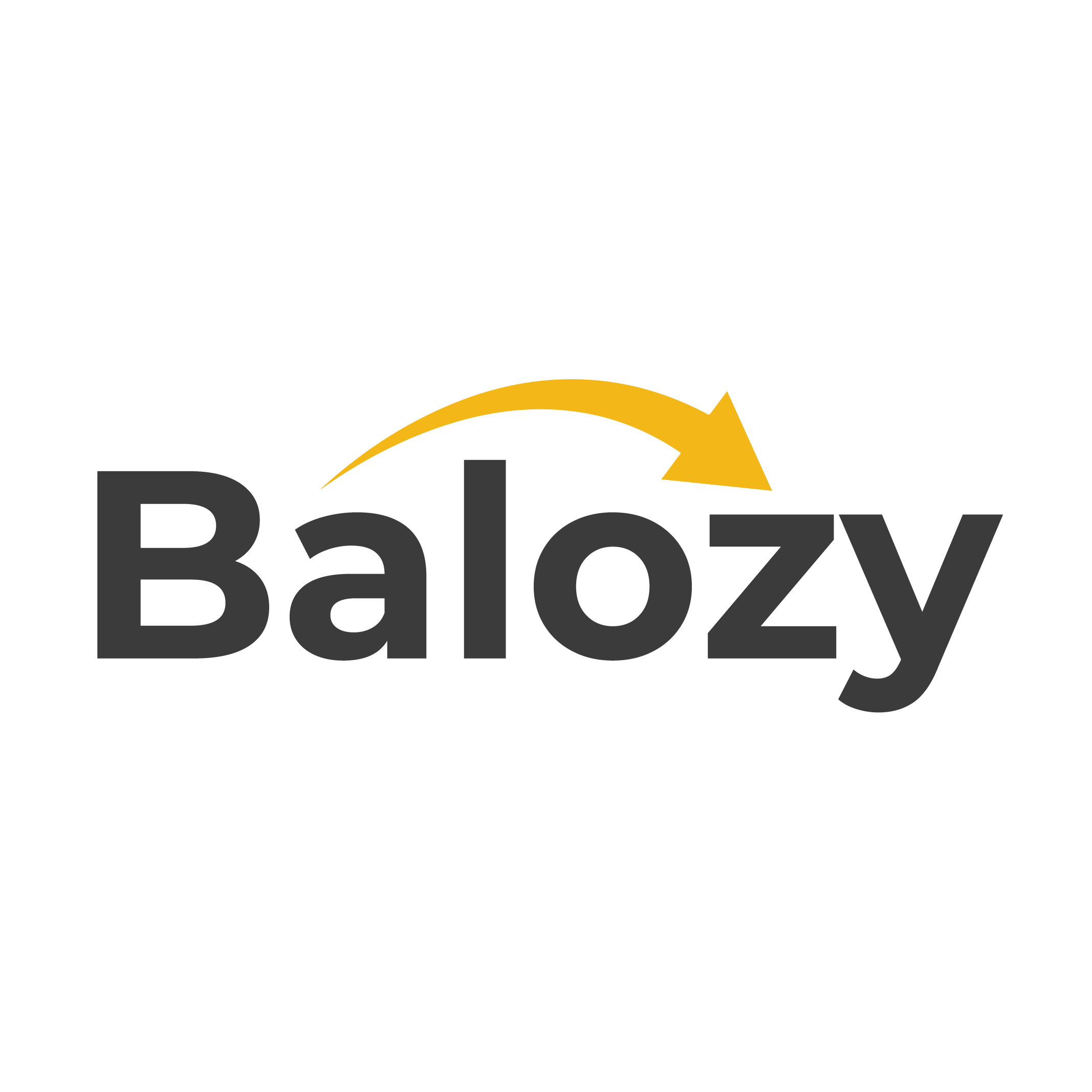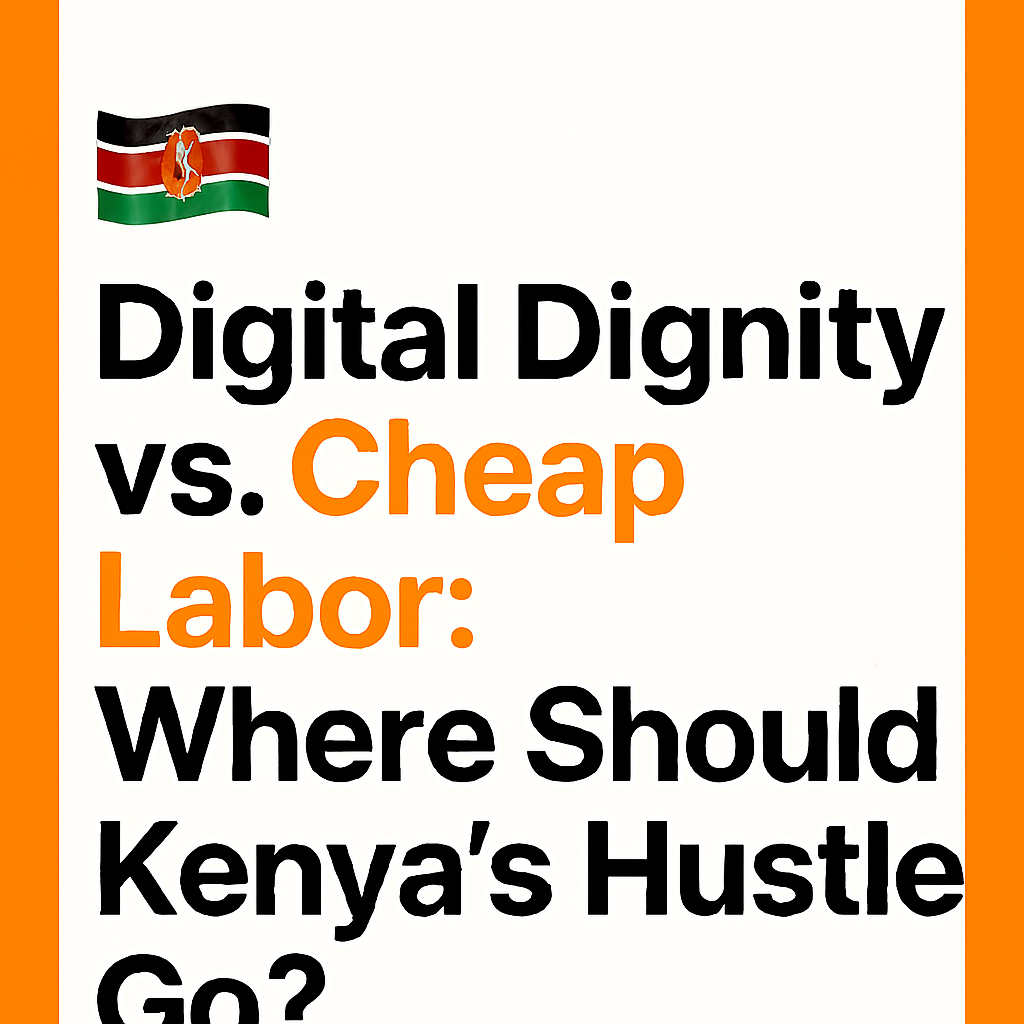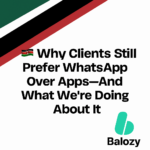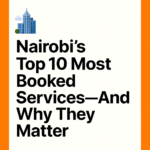In Kenya, hustle is more than a buzzword—it’s a way of life. From mama fua in Machakos to fundis in Nairobi, from tutors in Eldoret to boda riders in Syokimau, the service economy pulses with energy, resilience, and ambition. But as digital platforms like Balozy rise to organize and amplify this hustle, a critical question emerges:
Are we building a future of digital dignity—or reinforcing a system of cheap labor?
This isn’t just a philosophical debate. It’s a practical, urgent conversation about how Kenya’s service economy should evolve—and who it should serve.
💼 The Hustle Economy: Backbone of Kenya’s Workforce
Kenya’s informal sector accounts for over 80% of employment. For millions, formal jobs are out of reach, and hustle is the only path to income. Whether it’s cleaning homes, repairing electronics, tutoring kids, or installing CCTV systems, service providers are the unsung heroes of urban and peri-urban life.
Yet despite their importance, many hustlers operate in the shadows—unverified, underpaid, and unprotected. They rely on word-of-mouth, WhatsApp referrals, and neighborhood trust. There’s dignity in the work, but not always in the system.
📲 The Rise of Digital Platforms
Enter platforms like Balozy, Taskmoby, and FixChap. These apps promise to digitize hustle—offering verified profiles, client reviews, mobile payments, and job matching. They aim to bring structure, visibility, and trust to a chaotic marketplace.
But digitization alone doesn’t guarantee dignity. In fact, without intentional design, it can replicate the very inequalities it seeks to solve.
⚖️ Cheap Labor: The Hidden Cost of Convenience
Let’s talk about the elephant in the room: cheap labor.
Many clients expect low prices for high-quality service. They want a mama fua to clean a three-bedroom house for KSh 300. They want a fundi to fix a leaking roof for less than the cost of lunch. And they want it fast, verified, and with a smile.
This mindset is rooted in decades of informal labor practices—where service work is undervalued, and providers are seen as disposable.
Digital platforms risk amplifying this dynamic. If algorithms prioritize speed and price over skill and experience, pros are forced into a race to the bottom. Ratings become currency. Visibility becomes privilege. And dignity becomes optional.
💪 Digital Dignity: A New Standard for Hustle
But there’s another path. One where platforms like Balozy lead with digital dignity.
Here’s what that looks like:
- ✅Verified Trust: Pros undergo background checks, upload ID, and earn badges that signal reliability. Clients know they’re hiring someone vetted and accountable.
- ✅Fair Pricing: Platforms educate clients on market rates, labor value, and the cost of verified service. Pros set their own prices based on skill and demand.
- ✅Protection & Support: Verified pros get access to dispute resolution, safety protocols, and even micro-insurance. Hustle becomes safer.
- ✅Visibility & Respect: Verified profiles are showcased. Testimonials highlight professionalism. Hustlers are seen not just as workers—but as entrepreneurs.
Digital dignity isn’t just about tech. It’s about values. It’s about building systems that respect labor, reward skill, and restore pride.
🧠 What the Hustlers Say
Let’s hear from the ground:
- ✅Jane (Mama Fua, Eldoret): “Before Balozy, I relied on neighbors. Now I get bookings from people I’ve never met. I feel seen.”
- ✅Kevin (Electrician, Nairobi): “I used to chase jobs. Now jobs chase me. Verification changed everything.”
- ✅Amina (Tutor, Machakos): “Clients trust me more when they see my badge. I charge better rates and get repeat bookings.”
- ✅Brian (CCTV Installer, Syokimau): “I used to get undercut by unverified fundis. Now I show my badge and clients respect my quote.”
Their stories reveal a shift—from survival to strategy, from hustle to brand.
🔥 The Pricing Debate: Should Verified Pros Charge More?
This is where the tension lies. If platforms are building trust, shouldn’t verified pros earn more?
Some clients argue that service should remain affordable. Others believe that verified work deserves verified pay. It’s a tug-of-war between accessibility and dignity.
Balozy’s stance? Verified comfort isn’t just a feature—it’s a promise. And that promise must be backed by fair compensation.
In fact, Balozy is testing incentive models where verified pros receive visibility boosts, referral bonuses, and access to premium jobs. The goal is simple: reward trust with opportunity.
🌍 Regional Realities: Hustle by Cluster
Empowerment looks different in every region:
- ✅Nairobi: High demand, high competition. Verified pros stand out, but pricing wars are common. Clients are tech-savvy but price-sensitive.
- ✅Machakos: Growing trust in digital bookings, especially for mama fua and tutors. Localized messaging in Swahili and Sheng drives engagement.
- ✅Eldoret: Youth-driven hustle, strong uptake of verification, but limited client education. Balozy’s outreach focuses on storytelling and peer referrals.
- ✅Syokimau-Mulolongo: Airbnb crossover zone—pros who serve both guests and locals thrive with verified listings. Hospitality and home services blend here.
Localized outreach, cluster-specific incentives, and culturally relevant messaging are key to balancing empowerment and scale.
📈 Data vs. Dignity: The Platform Dilemma
Digital platforms thrive on data. Every booking, rating, and review feeds the algorithm. But data must serve dignity—not just efficiency.
If platforms use data to prioritize cheap labor, they reinforce exploitation. If they use it to spotlight verified skill, they build trust.
Balozy is choosing the latter. Its Firebase triggers, WhatsApp flows, and SEO clusters are designed to elevate verified pros—not just optimize clicks.
🧭 What Platforms Must Do
To truly empower hustlers, platforms must go beyond listings and ratings. They must build systems that respect labor, protect dignity, and reward trust.
Here’s what Balozy is doing—and what others should consider:
- 1. Fast-Track Verification: Make it easy, mobile-friendly, and localized. Use WhatsApp bots, Firebase triggers, and regional support teams.
- 2. Offer Incentives: Bonuses, visibility boosts, and referral rewards for verified pros. Celebrate milestones and first completions.
- 3. Educate Clients: Teach users why verified work costs more—and why it’s worth it. Use testimonials, badges, and trust signals.
- 4. Protect Pros: Introduce basic insurance, dispute resolution, and safety protocols. Build a safety net for the gig economy.
- 5. Celebrate Hustlers: Share stories, spotlight pros, and build community pride. Turn everyday work into verified mastery.
📚 The Bigger Picture: Hustle as Data, Dignity, and Design
Kenya’s service economy isn’t just about jobs—it’s about data, dignity, and design.
- ✅Data: Every booking, review, and verification builds a dataset that can inform global AI systems. Balozy’s long-term vision is to become Africa’s verified data engine—supplying ethical, representative datasets to global labs.
- ✅Dignity: Verified work isn’t just safer—it’s more respected. Hustlers deserve to be seen not just as laborers, but as professionals.
- ✅Design: Platforms must be built for low-data users, mobile-first flows, and culturally relevant UX. Balozy’s onboarding flows are designed for low-literacy users, with visual cues and voice support.
This isn’t just tech—it’s trust architecture.
💬 The WhatsApp Factor: Informal vs. Verified
Let’s not ignore the elephant in the room: WhatsApp.
In Kenya, WhatsApp still dominates service bookings. It’s fast, familiar, and free. But it’s also chaotic, unverified, and risky.
Balozy isn’t fighting WhatsApp—it’s integrating it. Verified pros receive automated nudges, booking confirmations, and client outreach via WhatsApp. The goal is to bring structure to the chaos—without losing the mtaa vibe.
🧩 Cheap Labor Isn’t Sustainable
Cheap labor may seem convenient—but it’s a trap. It leads to burnout, poor service, and broken trust. It devalues skill and discourages growth.
Digital dignity, on the other hand, builds loyalty, pride, and professionalism. It turns hustle into legacy.
Kenya’s service economy must choose: short-term savings or long-term sustainability.
🏁 Final Thoughts: Where Should Kenya’s Hustle Go?
Kenya’s hustle is powerful. It’s creative, resilient, and deeply rooted in community. But it needs systems that respect it.
Platforms like Balozy are showing the way—by building trust, verifying skill, and rewarding dignity. They’re not just digitizing hustle. They’re dignifying it.
So the next time you book a mama fua, fundi, or tutor—ask yourself: are you paying for convenience, or investing in dignity?
Because in Kenya, hustle isn’t just a job. It’s a movement.



